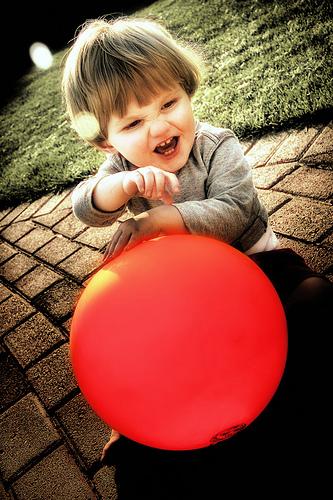Discipline is a form of teaching, not a type of punishment. There is a fine line to disciplining children—you want to give them freedom to explore and be kids but you also need to reinforce reasonable behavior. Knowing when to butt in and when to step back is never easy. Positive discipline involves being respectful of children—their freedom and their developmental levels—while setting limits and teaching them about the do’s and don’ts of life.
Function
Think of discipline as a way to teach self-control, rather than a way to reprimand your toddler. Positive discipline teaches children to become respectful, reasonable (at least for their age level) and caring members of society. Children are not born knowing how to fit into the world at large. It’s the parents job to teach them how to act properly.
Effects
Positive discipline nurtures self-worth and teaches children how to properly deal with emotions. Children are never ignored or shamed. If they are upset, parents teach them how to cool down. If your toddler falls apart in a playgroup, take her to an isolated, quiet area and let her cool down. Let her know that you’re listening to her but that she must cool down in order to be allowed back into the group. Children raised with positive discipline, rather than with authoritative parents, become effective communicators and are confident and better able to make their own decisions.
Misconceptions
Other views of child-rearing claim that children need to be punished and receive consequences, like spanking, for their actions in order to learn right and wrong, but this type of parenting may cause more harm than good. A 2002 study conducted by a psychologist from Columbia University’s National Center for Children in Poverty linked spanking to aggression, antisocial behavior and mental problems.
Considerations
Always consider your child’s developmental levels before you attempt to discipline. It’s normal for toddlers to do things that adults could never get away with. All toddlers become assertive and rebellious as a way to differentiate themselves from you and discover their independence. It’s also normal for young children to throw tantrums, which usually stem from the frustration of not being able to clearly express themselves. When you understand what’s normal for your child’s age level, you’ll stop taking everything so personally and be able to diffuse the situation.
Prevention/Solution
Your best bet is to avoid as many battles in the first place. Childproofing your house saves a lot of stress and frustration. Toddlers in childproof homes are free to explore without being constantly told “no.” Reserve saying “no” for serious issues only. Children who haven’t heard “no” in a while will perk up and pay attention when hearing that phrase. Constantly reprimanding children creates a negative situation that gives the impression that exploring is bad. Negativity can stifle exploration (learning).
This doesn’t mean children should get away with everything. If your child gets hold of an “illegal” object, substitute something else in its place or gently remove it from baby’s hands. Distraction is key. Make sure to be respectful. Plan ahead to avoid any crankiness.





